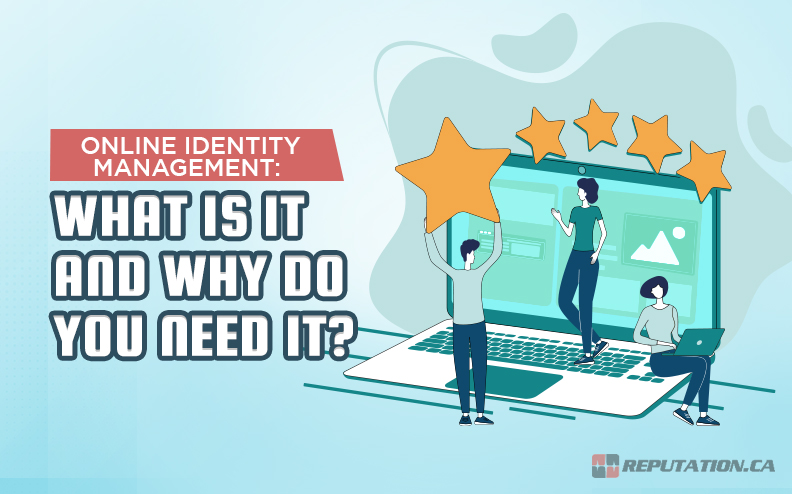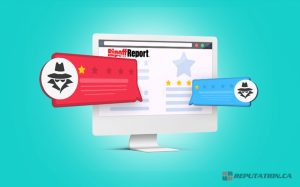Who you are is one of the most fundamental details of your existence, which might sound philosophical but is just a matter of your identity being important. Our identities are essential to maintaining our place in society since they are how we create a legal and financial presence. Our identities link us to our bank accounts, social security numbers, families, reputations, and more.
Our identities are us; without them, we cease to exist in the public eye and fade from society. The essential nature of identity makes it seem as though nothing can take our identities from us since we are the only ones who those identities fit. Unfortunately, this is not true, and some identities are vulnerable to being confused for someone else’s.
One of the main changes affecting our identities is the rise of the internet and online discourse, which allows billions of people to access the same information. This new field has led to an online marketplace where virtually every major brand can vend their wares to potential customers. This has allowed multiple businesses to spread to the international market and reach customers in other countries.
While this is beneficial, the large number of companies and limited range of wares has led to some overlap in company names and products. This has made it confusing for some people who think the company they are buying from is someone else. This is why identity management has become an essential part of corporate success.
What is Online Identity Management?
Online identity management is a relatively new concept generated by the rise of the internet and the growing number of corporate entities. More and more companies are being founded yearly, with some finding international success while others fail early in their lives. Most retailer brands and service providers overlap with rivals or other companies with similar traits.
Online identity management is a form of branding that allows these companies to distinguish themselves from one another. The process involves creating a distinct online presence and brand that allows customers to easily identify your business when their Google search yields hundreds or thousands of results.

Traditionally, online identity management is designed to accomplish 4 goals to improve the company’s online presence. These goals are:
- Maximizing the number of positive references to the company, individual, or organization. This includes references from direct searches for those companies, individuals, or organizations and from indirect searches.
- Constructing an online identity that is otherwise minimal or nonexistent.
- Improving the public perception of that company, individual, or organization.
- Expressing otherwise unheard opinions representative of that company, individual, or organization. This is primarily meant to compensate for situations where they were previously looked upon unfavorably.
While we are focusing on corporate online identity management, the practice can be used on a personal level. Individuals or groups can use the practice to improve their online presence and distinguish themselves from peers and competitors. The practice is increasingly common since more and more people have begun relying on the internet to identify retailers and service providers nationwide. Despite the commonality of online identity management, it might seem unnecessary to some groups, but it is critical to your success.
Why is Online Identity Management Important?
Online identity management might come across as a niche practice that is unimportant to you or your career. Unfortunately, this mindset could cause serious issues since online identity management is one of the most important parts of modern reputation management. Several risks can damage our public image and make it less likely for people and customers to associate with us.
These issues can manifest whenever a mistake is made, or a misunderstanding arises between our consumers and us. Generally, this generates a public relations response to try and reconcile the issues between the service provider and the disgruntled customers. Sometimes these responses are sufficient, and other times the animosity persists depending on the severity of the transgression.
These PR responses are only effective when the company responsible for the problem takes responsibility. Unfortunately, this is where certain overlaps between different entities can backfire and cause issues for your reputation. Let us say; for example, you are the CEO of GeneroCorp, which manufactures computer components.
Meanwhile, one of your competitors, Generic Inc., manufactures similar components, and their products begin causing catastrophic failures in the computers in which they are installed. Because of the similar names and fields your companies are in, disgruntled customers of Generic Inc. begin accusing you of manufacturing shoddy products.
As a result of the bad press, your company’s profits and reputation begin plummeting while Generic Inc. continues manufacturing subpar products. Although you are not manufacturing these components, the blame for their issues is diverted to you due to a potentially larger internet presence than Generic Inc.

Online identity management is critical because it allows you to distinguish your company from others clearly. This is especially true since customers will likely view a similar name as identical in their anger and frustration.
These tools are doubly important when identity issues result from someone else posing as you or a company representative to take advantage of your brand. Online identity management is not always because of overlap and could result from online identity theft. People will want to turn your success into their own and might commandeer your brand or internet handle to help themselves.
This could lead them to create a false website that mimics yours but is tied to a phishing scam that could ultimately cause trouble for your reputation. When someone weaponizes your brand, their actions are usually blamed on you despite you having nothing to do with the situation.
Without a distinct and unique online presence, it is more common for companies to be confused with one another. This issue is less prevalent for influencers with similar handles since people can have radically different appearances. Nevertheless, it is an issue that can impact any professional or individual. Protecting your reputation from errant outrage is not easy, and implementing online identity management techniques is not a one-off process. It requires multiple tools and techniques to implement properly and an understanding of several online reputation management techniques.
How to Implement Online Identity Management
Now that we have established why online identity management is important, the bigger issue is how to implement it to protect your image. Implementing online identity management requires understanding multiple aspects of the internet and how it affects your reputation. The first step is ensuring your brand is distinguishable from any other company and that your website is unique.
Many companies and organizations use pre-fabricated websites because they are practical and require minimal effort to get operational. Unfortunately, these generic websites with minimal branding efforts are the easiest to replicate for unaffiliated parties.
The more generic your webpage is, the easier for others to confuse your website for another generic domain. It also means people looking to pose, as you can easily duplicate the design and pages to make them seem legitimate. Meanwhile, their actions are placed on your shoulders because you seem to be the responsible party. Therefore, your first step in online identity management is to create a unique and custom-designed homepage. The more detailed the design is, the less likely it will be for someone to duplicate it or confuse it for another party’s homepage.
The next step is to ensure you have rapid access to communication with your audience and consumers. Whenever an issue arises, people will want answers as quickly as possible and attempt to get them however they can.
Modern companies have turned to social media to mediate rapid responses to issues and conflicts. Virtually every major company and influencer maintains accounts on Facebook, Instagram, and Twitter since they allow direct communication with consumers and viewers. This makes it easier to answer questions, address their followers’ concerns, and resolve problems with online identity.
The trick with social media is regulating responses to avoid creating larger controversies that might damage your reputation. Additionally, several spoof accounts are easily made on social media that might misrepresent your brand to profit off an existing following. Maintaining regular communication via social media helps combat false accounts by allowing you to identify them and warn your consumers against trusting those profiles. However, these social media practices help online identity management in another way.

One of the key tools of online identity management is employing search engine optimization (SEO) practices. SEO is a fancy acronym for taking advantage of the algorithms used by search engines like Google and Bing. Whenever someone looks something up online, these search engines intuitively enhance the results with links and topics related to their search parameters.
For example, using Google to look up “cell phones” will provide the user with a list of modern smartphones, the stores they come from, and any recent media coverage discussing the most recent models. As we write this article, using Google to look up “iPhone” brings up the URLs for the Apple website, listings for purchasable models, and articles discussing the iPhone SE 4.
The key detail is that the listings for available iPhones are not all based on the Apple website and are from mobile service providers and third-party resellers for outdated models like the iPhone XR. The sheer number of results is due to the algorithm attempting to provide as much “relevant” information to the user as possible. While this can be handy, it means that results tangentially related to your business could show up near the top of the list, sometimes outranking results from your website. This could easily contribute to mistaken identity issues when consumers look for you or your products online.
The best way to combat this phenomenon is to create more content and social media posts to put results directly related to you and your business at the top of the page. The more content you produce, the less likely other content will be presented to users. Creating new content does not mean you have to create new products non-stop.
You can add content by hosting a blog discussing your industry or being invited to discuss similar topics on other websites. This extra content will drive more users to your homepage rather than similar rivals or scam copies. Even when that content is hosted on another website, the results will return to your homepage because you control where the hyperlinks go.
Online identity management requires concentrated efforts to keep other harmful pages from being misattributed to you. Since the internet is large enough to be considered another universe, sometimes we need some help to protect our identities and reputations.
Take Your Reputation Back!
Online identity management is an extremely important part of reputation management because mistaken identity can cause you to take the blame for someone else’s actions. Online identity management can also help you develop your brand to stand out from your peers in the industry. This development does more than prevent mistaken identity and helps you create something people will recognize as soon as they see the logo.
Insofar as reputation management is concerned, you must conduct regular checks on your company’s name to determine the most common results. Additionally, keeping in touch with your customers is especially important since it helps them stay apprised of when someone else’s product is being misattributed to your brand.

We at Reputation realize that online identity management, while important, is not easy to do alone. There are so many online results and overlaps between brands in the same industry these issues can arise without you realizing it. Dedicating an entire branch of your company to managing these details is effective but costly if your business is still fairly small or your funds are tied up in another part of the business.
That is why we have dedicated ourselves to helping businesses and individuals manage their reputations and identities by performing searches and addressing harmful content before it can damage your image. If you are dealing with identity crises with your company, we encourage you to visit our website so you can take your reputation back!











